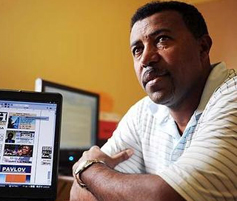
CPJ’s exiled journalists survey: Behind the numbers
In 2007, my colleague Karen Phillips suggested we do something to mark World Refugee Day. Initially planning to publish a brief statement, I set about reviewing our data for background, checking in with older journalist cases about their current situation and looking broadly for trends to highlight. As the number of cases began counting into…
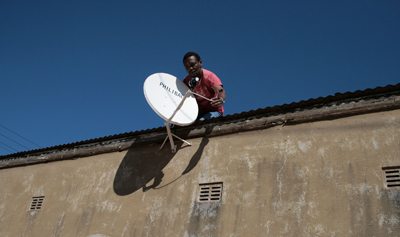
Sub-Saharan Africa censors Mideast protests
As news of Middle Eastern and North African protests swirl around the globe, satellite television and the Internet prove vital sources of information for Africans as governments fearful of an informed citizenry and a free press such as in Eritrea, Equatorial Guinea, and Zimbabwe impose total news blackouts on the developments.
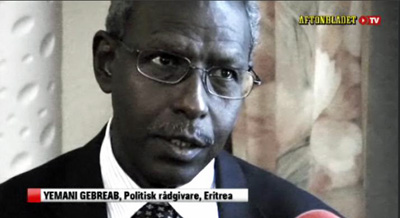
Eritrean official says jailed journalists were security threat
Since a week after September 11, 2001, when the government of Eritrea threw into secret prisons journalists from its once-vibrant private press, the only certainty it has offered about the fate of the prisoners has been ambiguity. Over the years, officials have offered various explanations for the arrests—from nebulous anti-state conspiracies involving foreign intelligence to press law violations. They have…
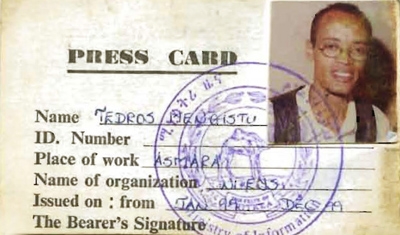
For Eritrean expatriate press, intimidation in exile
For the better part of the last 20 years, Tedros Menghistu has been a refugee, forced to flee his Red Sea homeland of Eritrea not once, but twice—first as a young man displaced by war in the early 1990s, and then as a professional journalist escaping political censorship and military conscription a decade later. Menghistu is also…
Eritrean journalist attacked at public seminar in Houston
New York, May 27, 2010—The Committee to Protect Journalists calls for a thorough investigation into a May 9 attack on an Eritrean expatriate journalist by supporters of Eritrean President Isaias Afwerki at a public event in eastern Texas. The event was advertised locally in printed fliers, and on the pro-government Dehai.org Web site as a “Public Seminar…
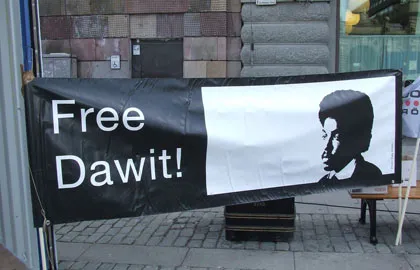
Reluctant activist: A brother’s struggle to free Dawit Isaac
In 2001, Eritrean security forces imprisoned Eritrean-Swedish journalist Dawit Isaac along with nine other journalists without trial in September 2001. The arrests effectively shut down the nation’s fledgling independent press and any potential political dissent prior to scheduled December 2001 elections, which were subsequently cancelled. To this day, Dawit is believed to be held incommunicado…

Exiled Eritrean editor reunites with family
Eight years ago, Aaron Berhane left his wife and three children behind as he fled his native Eritrea, a fugitive wanted by authorities because his newspaper had dared criticize the government of revered independence leader Isaias Afewerki. In May 2009, Berhane’s family managed to escape to Sudan. This month, at last, they joined him in…

Dawit Isaac: Jailed 3,127 days in Eritrea without trial
Journalist Dawit Isaac has spent 3,127 days in government custody in his native Eritrea, according to the ticker on FreeDawit, a Web site based in Sweden, Isaac’s adopted country, where he is a citizen. He has never been publicly charged with a crime or been given a trial. A thorny issue between Sweden and the…

Truth about jailed journalists is locked away in Eritrea
In the reclusive Red Sea nation of Eritrea, the fate of 10 journalists who disappeared in secret prisons following a September 2001 government crackdown has been a virtual state secret—only occasionally pierced by shreds of often unverifiable, secondhand information smuggled out of the country by defectors or others fleeing into exile.
